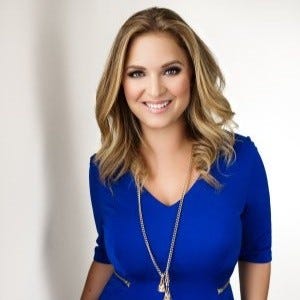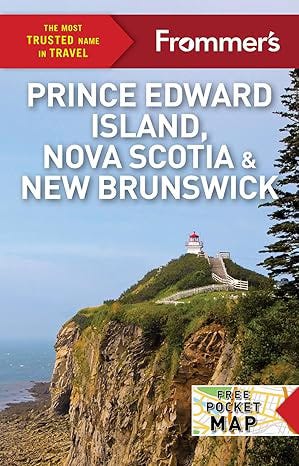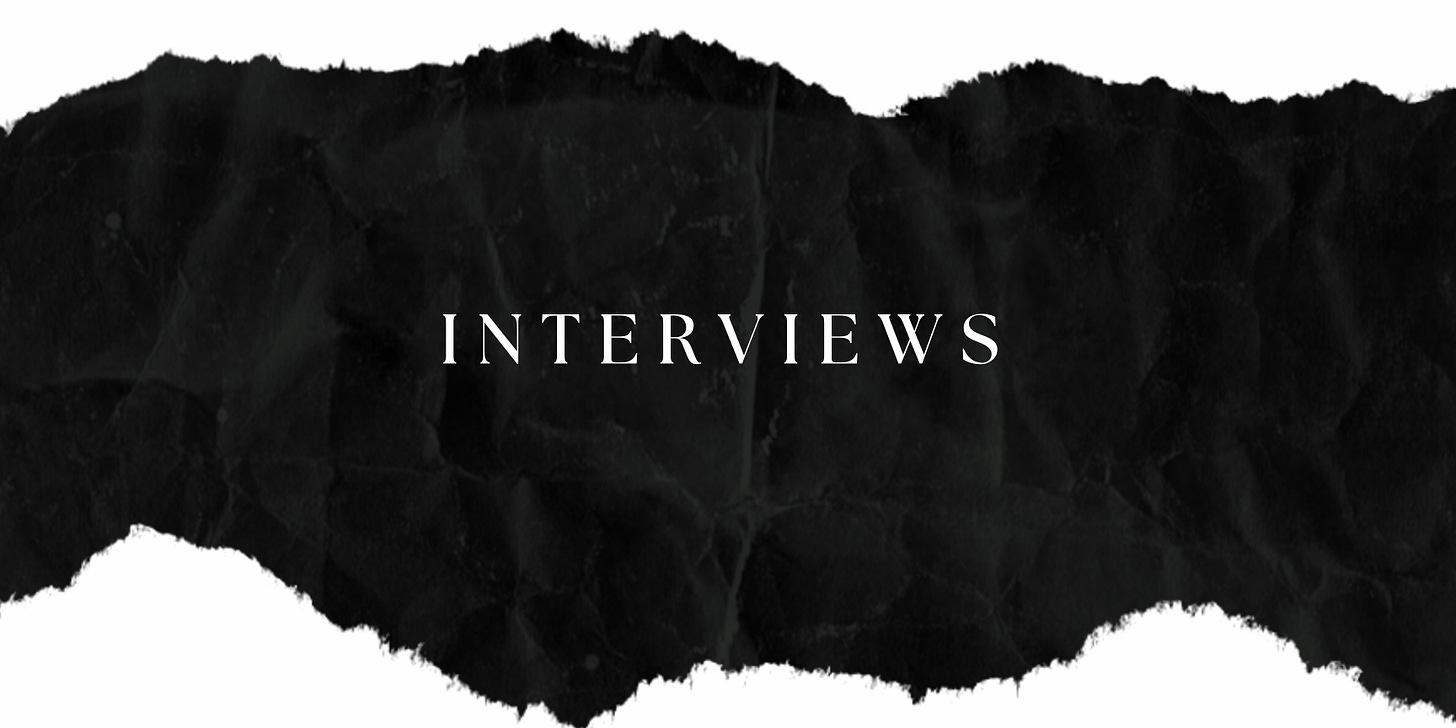I found Barbara Balfour on LinkedIn and felt that immediate pang of envy. The good kind of envy. The kind of envy and admiration helps me identify my own goals.
Balfour is a Canadian television host and producer, award-winning public speaker, and international print journalist.
She’s been the host of a show on Rogers TV in Ottawa and boasts bylines in some big name papers and magazines. Like BBC World News, The Globe and Mail, and ELLE.
She’s published two children’s books, contributed to tourism guidebooks on Iceland and Chile, and co-edited an anthology of essays on Canada-European Union relations.
Her latest project just hit the shelves June 20! If you’ve ever wanted to travel to Canada’s East Coast, I recommend picking up the Frommer’s 2025 guide to Prince Edward Island, Nova Scotia and New Brunswick.
AF: You’ve created a life that many of us would envy. Can you give us a summary of your career and how you chose this path?
BB: Growing up, my family didn’t have money for sports or music lessons, but the library was free. So I devoured books by the armfuls every week, making libraries my regular haunt. Becoming a writer was a natural segueway for a bookworm, but I had been raised by strict immigrant parents who believed the humanities were a hobby and not a career. It wasn’t until my late teens, when I stumbled into a summer journalism internship, that I realized I could actually get paid for doing what I loved.
Still, I believed I needed a backup. I couldn’t imagine myself studying engineering or medicine, while everyone I knew who went into law was deeply unhappy. So I completed an undergraduate degree in business, which came in handy later as I grew my own freelance business. But before that came a series of jobs, first as a daily newspaper reporter, then in communications, for industries ranging from government and oil and gas, to health care and academia. That experience has become invaluable for my career.
The line between journalism and public relations has become increasingly blurred. Knowing how to switch seamlessly between the two has doubled my client base and made me a better storyteller overall.
Along the way I’ve held roles as the host and producer of my own live talk show for Rogers TV, written for media outlets ranging from BBC to the Economist Group, worked as a foreign correspondent in Brussels and Tokyo, travelled to more than 50 countries and authored several books.
AF: What are your favourite subjects to write about and why?
BB: I’m fascinated by the deeper reasons behind human behaviour—what makes people tick, why certain trends catch fire, and how we navigate life’s complexities. I love uncovering quirky, off-the-beaten-path stories about individuals who defy the odds and find creative solutions to relatable problems. Travel and food are two of my greatest passions, so I really enjoy writing about those worlds as well. I also like doing a deeper dive into the world of money; how we manage it, relate to it, lose it and make more of it. There’s something thrilling about being the first to break a story or surprising readers with a fresh perspective or an unexpected nugget of valuable information.
AF: Are there any negative aspects to your freelance life?
BB: Running your own business offers an incredible sense of freedom, but constantly having to prove your value can be draining. No one wants the cheapest root canal, but creative work isn’t given the same respect and the value of expertise is often questioned. Part of that is because barriers to entry have dropped drastically; now everyone with a camera or a blog calls themselves a journalist, writer, or photographer.
There’s also the common misconception that AI can do everything for you - but I see it more like how the calculator replaced the abacus, yet you still need to hire an accountant to do your taxes.
I once met a painter who was asked how long it took to create a work of art. His answer? “53 years”—his entire life experience, which led to the point where he was able to create the paintings that he sold for a living. That’s why paying creatives by the hour or the word doesn’t always capture the true value they bring.
AF: You’ve expressed an interest in writing fiction, tell me more about that and what genre/length you want to create.
BB: I’m really drawn to screenplays because I’m a huge film buff. I imagine there’s something magical about seeing your words come to life onscreen and being interpreted by the perfect cast.
I’d also love to write a novel someday, but as a lifelong journalist, it’s a bit challenging. I’ve seen firsthand that truth is often stranger—and more compelling—than fiction.
(Authorial note: As a journalist who just finished her first novel and is half-way through the second, I can attest it’s more than just a bit challenging. )
When readers know a story actually happened, you don’t have to work as hard to suspend their disbelief and capture their attention. I’ll definitely take a couple of courses in the near future to wrap my head around some of the technical elements of fiction writing.
AF: What kind of writing do you find the most profitable? Or is it your television work?
BB: Hands down, writing for corporations - whether it’s a TV script, a white paper or a blog post - is the most financially rewarding, since they have much bigger budgets than traditional media outlets. But spiritually, the writing that truly feeds my soul is the kind where I have free reign to express my personality—usually in essay-style pieces where I can share how I’ve grown through personal experiences.
AF: What is your advice for young writers wanting to follow a similar career path?
BB: Diversify your skills and income streams—whether it’s media training, communications, strategy, public speaking, editing, tutoring, social media, or video editing. Storytelling comes in so many forms nowadays. Learn financial planning and keep your cash flow steady; ask clients for a deposit up front, or suggest a retainer arrangement where you put aside a certain number of hours per week for them and can count on that steady income.
And never write for free or fall for the “exposure” excuse—it’s a trap. Also, skip applications that demand unpaid writing tests; your time and talent deserve more respect than that.
AF: You must have had many adventures in your travels! Is there an anecdote you want to share with us?
BB: There are so many. How do I choose just one? I’ve been so fortunate; I’ve salsa danced under the stars in Cuba, eaten bumblebee larvae at the world’s #1 restaurant in Denmark, casually hung out with sumo wrestlers in my neighbourhood in Tokyo, and visited a nudist colony in the suburbs of Edmonton. I’ve met amazing people along the way, kind strangers who renewed my faith in humanity and inspired me to be better too.
At a time when our world feels more divided than ever and the trap of hatred is so easy to fall into - I can’t stress enough the importance of leaving your comfort zone, staying open and meeting as many people in the big world out there as you can. You will find humans with whom you just click within seconds, who spark something within you, inspire you, and generously bring you into their circle as if you’ve always been a part of them. I have deep friendships all over the world from my travels, and I couldn’t ask for a better souvenir.
AF: What is in the future for Barbara Balfour?
BB: More travel. More storytelling, in all its forms. And along the way, staying present and open to all the simple pleasures that make life so rich and fulfilling.
Learn more about Barbara here!







Your questions drew out such good insights, especially on the blurred lines between journalism and PR. Very good interview. Thank you for sharing.
I also have a personal question I wanted to ask, I left it inbox, when you have time please check it out.
"I’d also love to write a novel someday, but as a lifelong journalist, it’s a bit challenging. I’ve seen firsthand that truth is often stranger—and more compelling—than fiction." Well nothing's weirder than real life.